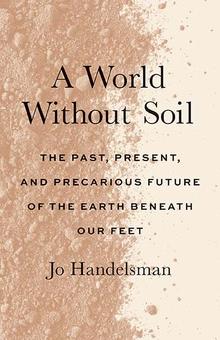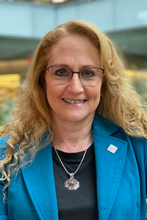
A World Without Soil
Watch a replay of this event at: https://www.youtube.com/watch?v=LeOjcrN9itM
A scientist’s manifesto addressing a soil loss crisis accelerated by poor conservation practices and climate change. This book by celebrated biologist Jo Handelsman lays bare the complex connections among climate change, soil erosion, food and water security, and drug discovery. Humans depend on soil for 95 percent of global food production, yet let it erode at unsustainable rates. In the United States, China, and India, vast tracts of farmland will be barren of topsoil within this century. The combination of intensifying erosion caused by climate change and the increasing food needs of a growing world population is creating a desperate need for solutions to this crisis.
Writing for a nonspecialist audience, Jo Handelsman celebrates the capacities of soil and explores the soil-related challenges of the near future. She begins by telling soil’s origin story, explains how it erodes and the subsequent repercussions worldwide, and offers solutions. She considers lessons learned from indigenous people who have sustainably farmed the same land for thousands of years, practices developed for large-scale agriculture, and proposals using technology and policy initiatives.
Presented in partnership with the Wisconsin Science Festival.
Jo Handelsman

Dr. Jo Handelsman is the Director of the Wisconsin Institute for Discovery at the University of Wisconsin-Madison, a Vilas Research Professor, and Howard Hughes Medical Institute Professor. She previously served as a science advisor to President Barack Obama as the Associate Director for Science at the White House Office of Science and Technology Policy (OSTP) where she served for three years until January 2017, and was on the faculty at the University of Wisconsin and Yale University before that. She received her Ph.D. at the University of Wisconsin–Madison in Molecular Biology and has since authored over 200 scientific research publications, 30 editorials, and 29 essays. She is responsible for groundbreaking studies in microbial communication and metagenomics. She is also widely recognized for her contributions to science education and diversity in science. She has authored numerous articles about classroom methods and mentoring and she is co-author of six books about teaching, including Entering Mentoring and Scientific Teaching. She received the Presidential Award for Excellence in Science, Mathematics, and Engineering Mentoring from President Obama in 2011 and was inducted into the American Academy of Arts and Sciences in 2019.
